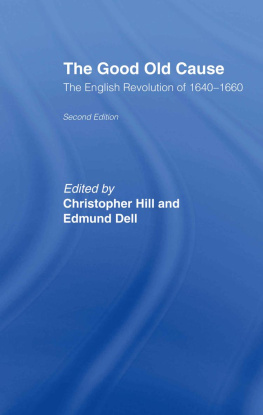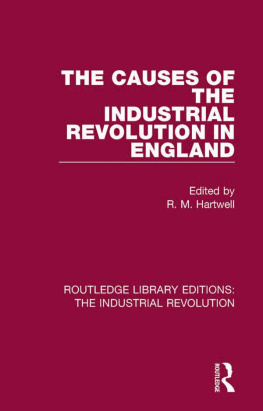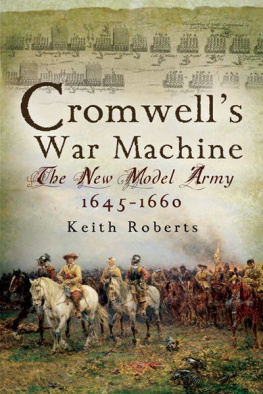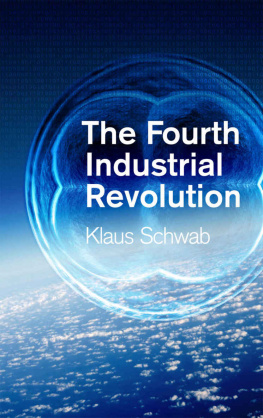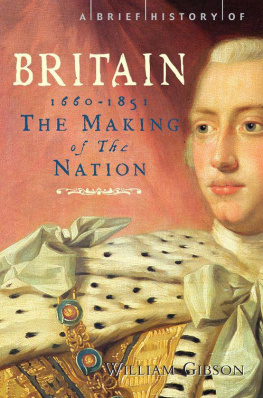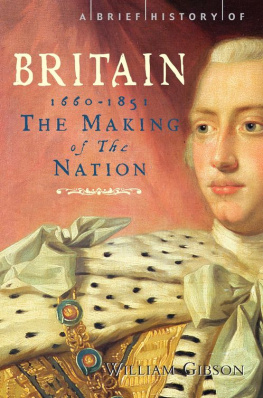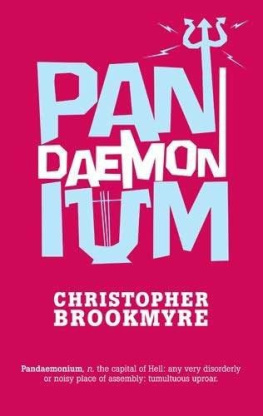A masterpiece of collage that reads like a novel. The Times
Stimulating to mind and imagination... a monument to one of the unique artists of our time, a visionary poet... Jennings was absolutely exceptional in his combination of intellectual curiosity and wit with deep and subtle human response... you will be illuminated and enriched. Lindsay Anderson, Spectator
The first thing that strikes you is the high quality and enormous variety of the images that he assembled... It is what Ezra Pound called an active anthology, a book that sets ideas in motion and establishes a complex network of internal cross-references. New York Times
Jennings sought to use the writings of others to create something entirely new. What he was after was a continuous narrative on the Industrial Revolution, woven from contemporary observations and opinions... [he has] produced a book which is at once a treasure-chest of quirky, unusual pieces and a memorable account of the most devastating and exciting sea-change which has yet engulfed mankind. Observer
[The] magnum opus of one of the most remarkable English talents of [the twentieth] century. Bookseller

Humphrey Jennings by Lee Miller, 1944 Lee Miller Archives, England 2012. All rights reserved. www.leemiller.co.uk
This new edition published in 2012 by
Icon Books Ltd, Omnibus Business Centre,
3941 North Road, London N7 9DP
email:
www.iconbooks.net
First published in 1985 by Andr Deutsch Ltd
First published in paperback in 1987 by Picador, and in 1995 by Papermac, an imprint of Macmillan Publishing Group
Sold in the UK, Europe, South Africa and Asia
by Faber & Faber Ltd, Bloomsbury House,
7477 Great Russell Street, London WC1B 3DA or their agents
Distributed in the UK, Europe, South Africa and Asia by TBS Ltd, TBS Distribution Centre,
Colchester Road, Frating Green, Colchester CO7 7DW
Published in Australia in 2012
by Allen & Unwin Pty Ltd,
PO Box 8500, 83 Alexander Street,
Crows Nest, NSW 2065
Distributed in Canada by
Penguin Books Canada,
90 Eglinton Avenue East, Suite 700,
Toronto, Ontario M4P 2YE
This edition published in the USA in 2012 by
Icon Books Ltd, Omnibus Business Centre,
3941 North Road, London N7 9DP, UK
Distributed to the trade in the USA by Consortium Book Sales and Distribution, The Keg House,
34 Thirteenth Avenue NE, Suite 101, Minneapolis, Minnesota 55413-1007
ISBN: 978-184831-585-3
Text copyright Marie-Louise Jennings 1985, 2012
Foreword copyright Frank Cottrell Boyce 2012
The author has asserted her moral rights.
No part of this book may be reproduced in any form, or by any means, without prior permission in writing from the publisher.
Contents
F RANK C OTTRELL B OYCE
H UMPHREY J ENNINGS
M ARIE - L OUISE J ENNINGS
Humphrey Jennings was educated in Cambridge at school and at Pembroke College, where he read English. He joined the GPO Film Unit in 1934. In 1936 he, Tom Harrisson and Charles Madge founded Mass Observation, and in the same year he exhibited at the International Surrealist Exhibition. He is best known for the documentary films he made during the war. He died in 1950.
Marie-Louise Jennings was educated in London and New York and at Birkbeck College. She is an historian of eighteenth- and nineteenth-century Ireland. As Marie-Louise Legg she published her thesis on the growth of the Irish provincial press in the nineteenth century and she has edited a number of eighteenth-century Irish diaries and letters.
Frank Cottrell Boyce is a childrens writer who was part of Danny Boyles creative team for the Opening Ceremony of the London 2012 Olympic Games. His Carnegie Medal-winning novel Millions was filmed by Danny in 2004. He also wrote the films 24 Hour Party People, Hilary and Jackie, and The Railway Man. His latest book is the official sequel to Chitty Chitty Bang Bang.
FOREWORD
Pepys, the Domesday book, the films of Mitchell and Kenyon there are certain works of record without which the lineage of our lives would be lost. For those who care how we are what we are and how recently that journey took place, this book is essential.
Danny Boyle
The thing about a gift as opposed to a deal or a meeting is that its consequences are impossible to predict. This book first began to take shape as a kind of gift. Humphrey Jennings spent six months shooting his extraordinary film The Silent Village in Cwmgiedd. As a way of thanking its people for their hospitality and co-operation, he gave a series of talks on the Industrial Revolution using extracts from journals, newspapers, novels and letters that he had collected for an edition of The London Bulletin. He continued to collect these extracts images he called them throughout his life, but it was only after his death that his daughter, Marie-Louise, and his Mass Observation colleague, Charles Madge, were able to pull a selection of them together into a book. I was given a copy of that book again as a gift by the film director, Julien Temple. Juliens own best films about the Sex Pistols, Joe Strummer, Glastonbury, London are brilliant, disorientating collages of images of Britain, just like this book. Theyre one of the unpredictable consequences of Jennings Cwmgiedd talks. When, a few years later, Danny Boyle told me he was going to direct Frankenstein for the National Theatre, I said, Youve got to read Pandmonium. Ill get it for you. The book was out of print by then. The cheapest copy I could find set me back 42.50. I was generous enough to buy it but not generous enough to forgo mentioning the cost. I put a note inside saying Youd better read this. It cost me 42.50. Danny dutifully read it and loved it (he was especially fond of paragraph 23). I dont know how much influence it had on Frankenstein but it became the backbone of the first section of the Opening Ceremony of the 2012 Olympic Games. Its most striking images an industrial powerhouse rising before your eyes , a green hill disgorging workers into the arena, rings forged in molten steel all come from here. In fact the section was called Pandemonium. Who could ever have foretold that a series of talks given in a miners institute seventy years ago would form the backbone of a massive global media event of the age watched, tweeted, favourited, streamed by billions of people across the planet?
Pandmonium documents the Industrial Revolution. Weve had another revolution since then, of course. The Opening Ceremony was an event that both celebrated and immersed itself in the digital revolution. But at its heart was that most analogue of things a book. Only books can free us from the tyranny of the Present. The internet gives us the whole world now but it has shrunk now to a moment. As Danny Boyle put it, we are children of the machine age, locked inside this terrifying beast, increasingly innocent of how it makes things for us. Only books can let us hear the voices that brought us here. Also they can be given as gifts.
As a book,



